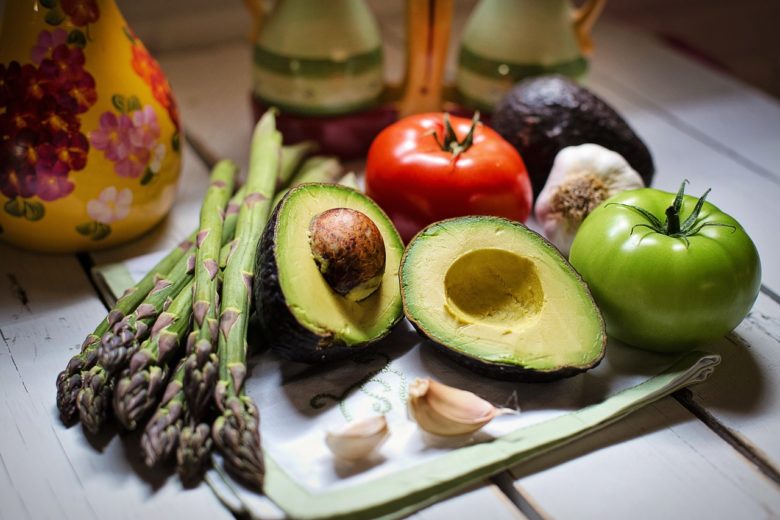
Tips for Vegan Eating: How to Be Vegan on a Budget
We are reader-supported. When you buy through links on our site, we may earn affiliate commission.
One of the main drawbacks to jumping into vegan living is affording groceries. You might question how long you can keep up this lifestyle on a budget. But plant-based eating doesn’t have to drain your bank account if you approach it with the right mindset and tools.
You might be willing to change your eating habits to benefit the environment and your health, but it isn’t true that you need to rework your finances to go vegan. But as you start on your sustainability journey, you need a way to manage your expenses and accommodate your lifestyle. Below you’ll find eight tips to guide you in your efforts to be vegan on a budget.
1. Shop Seasonally
You might be in the mood for pineapples when apples are in season in your region. Rather than buying overpriced pineapples for your dish, purchasing the seasonal fruit can reduce your total at the checkout counter and give you naturally ripe options full of flavor.Out-of-season vegetables and fruits cost more because they’re brought in from a different location. To avoid high shipping prices bumping your grocery costs up, find out what farmers are harvesting closer to home. Do your research before you go shopping so you’ll already be on the lookout for the produce of the month.
2. Fix Homemade Condiments and Treats
Specific vegan condiments and toppings require some creativity because the products labeled “vegan” tend to be pricey. You can whip up plant-based versions of dressings, dips and spreads to avoid the expensive alternatives at the store.
You can also make a dairy-free cheese rather than splurging on ready-made ones. These nut-based, creamy imitations take time to make, but a DIY cheese can enhance your vegan meals without breaking the bank.
3. Take Advantage of Generic Products
While you may stick with certain vegan brands that make exceptional foods, the key to cutting down costs is seeking out generic staples. These probably won’t have a “vegan” label, but when you review the ingredients list, you might find they’re free of animals products.
Basic ingredients like grains, flour, beans, rice and nuts should be safe for your vegan lifestyle. The generic versions of these staples are typically a few dollars or cents less than the big brand ones.
4. Try Freezer Options
Fresh fruits and vegetables aren’t the only produce that’s nutritious and versatile for vegans. Produce stored in the freezer section is still packed with vitamins and nutrients to enhance your diet, and they can last you a long time. They’re also budget-friendly.
Find additive-free frozen produce to include in your dishes. Frozen fruits can give your smoothies a thick consistency too. Mix frozen banana into one, and you’ll think you’re eating ice cream without the substantially higher cost of branded-vegan ice cream.
5. Choose Worthwhile Meat Replacements
Replacing meat in your diet can be challenging, but you have several meatless options to choose from including foods made from tofu, jackfruit and vegetable protein. From veggie burgers to non-meatballs, picking a solid protein-rich meat alternative is essential for a vegan on a budget.
Beans are a go-to replacement for meat that can be more expensive than necessary. Canned beans are simple to cook, but bags of dried beans are more cost-effective. Limited preparation can provide you with plenty of substantial protein for your upcoming meals.
Egg substitutes are also essential. A flax mixture can act as an affordable replacement. Other low-cost egg-like substances that you can use when baking include applesauce and mashed banana.
6. Compare Prices
Store prices can fluctuate depending on their products and suppliers, so the grocery stores in your area could have a range of prices for a single item on your list. You might find coconut milk for a much lower price if you go down the road to the next store, so scout out the best options for your budget.
Many stores have their deals posted on their websites, so you may not have to travel between each place to locate the best price. Watching deals and sales can provide you with a wider variety of low-priced foods to add to your meals as a vegan on a budget.
7. Start Meal Planning
Deciding on your meals before you take a trip to the store can help keep you on track if you’re prone to going off budget. Extra items in your cart can quickly add up, so use a weekly meal planner for each day’s breakfast, lunch and supper so you can map out the ingredients you need.
Planning out your week is a constructive habit for any vegan. A plant-based diet could require more time chopping or peeling, so factoring in an appropriate amount of time for food preparation can help you ensure you have enough time to cook. This also keeps you away from resorting to pricey, on-the-go vegan options.
8. Get Bulk Sizes
Small or single-serving packages end up costing more, so purchasing in bulk can save you money in the long run. You can find bulk containers at wholesale outlets and sometimes at regular grocery stores too.
Consider buying in bulk anything that you use a lot of and that won’t go bad before you use it all. Store your bulk items in air-tight containers to help them last longer. In addition to the benefit of saving money, buying in bulk also has the environmental advantage of using less packaging.
Choose Affordable Plant-Based Eating
You don’t have to shell out vast amounts of money when you switch to a vegan lifestyle. Plant-based foods can fit into your budget if you shop wisely. You can still improve your health and your environment as a vegan on a budget.
Share on
Like what you read? Join other Environment.co readers!
Get the latest updates on our planet by subscribing to the Environment.co newsletter!
About the author

Jane Marsh
Starting from an early age, Jane Marsh loved all animals and became a budding environmentalist. Now, Jane works as the Editor-in-Chief of Environment.co where she covers topics related to climate policy, renewable energy, the food industry, and more.





